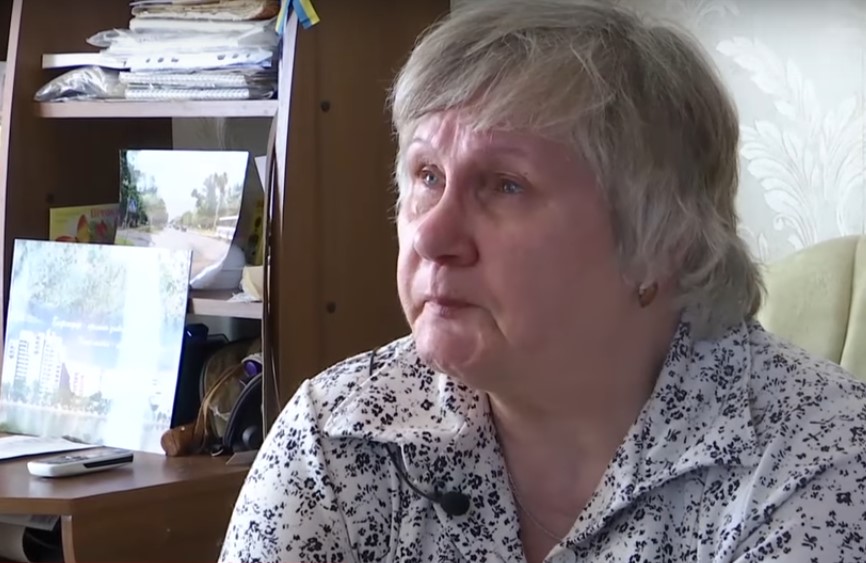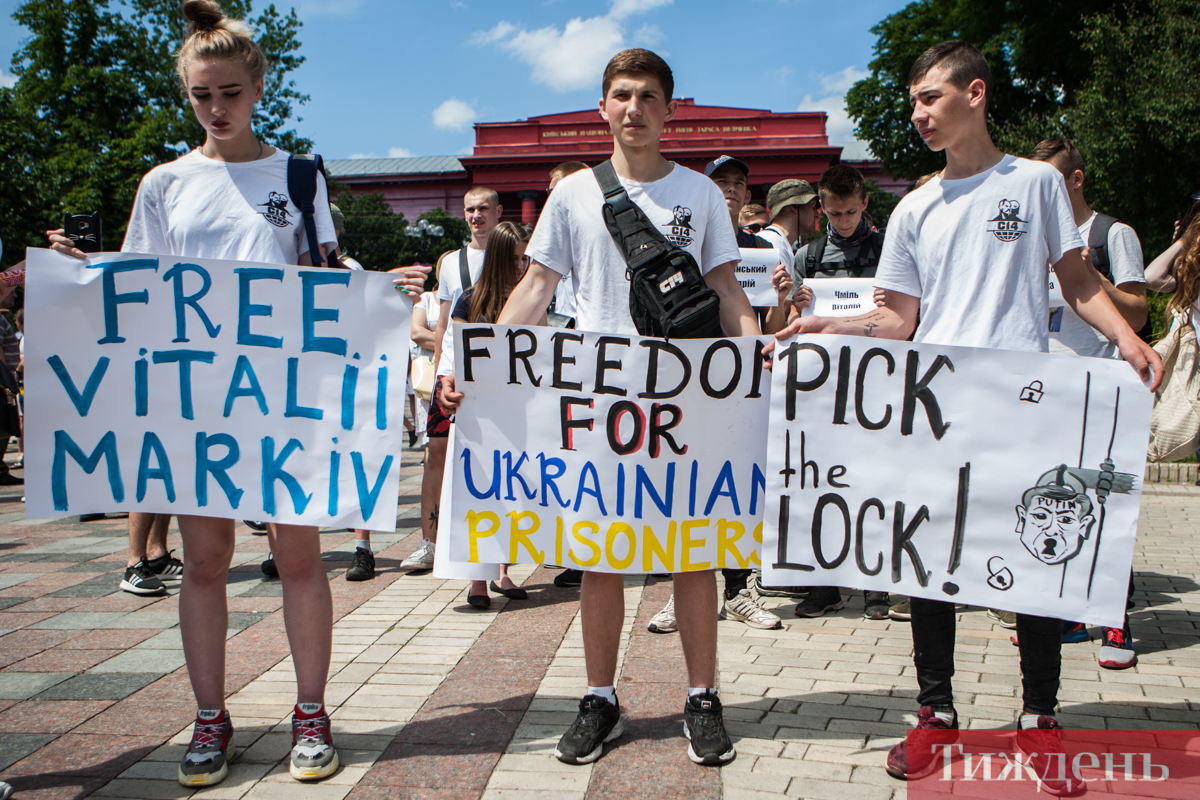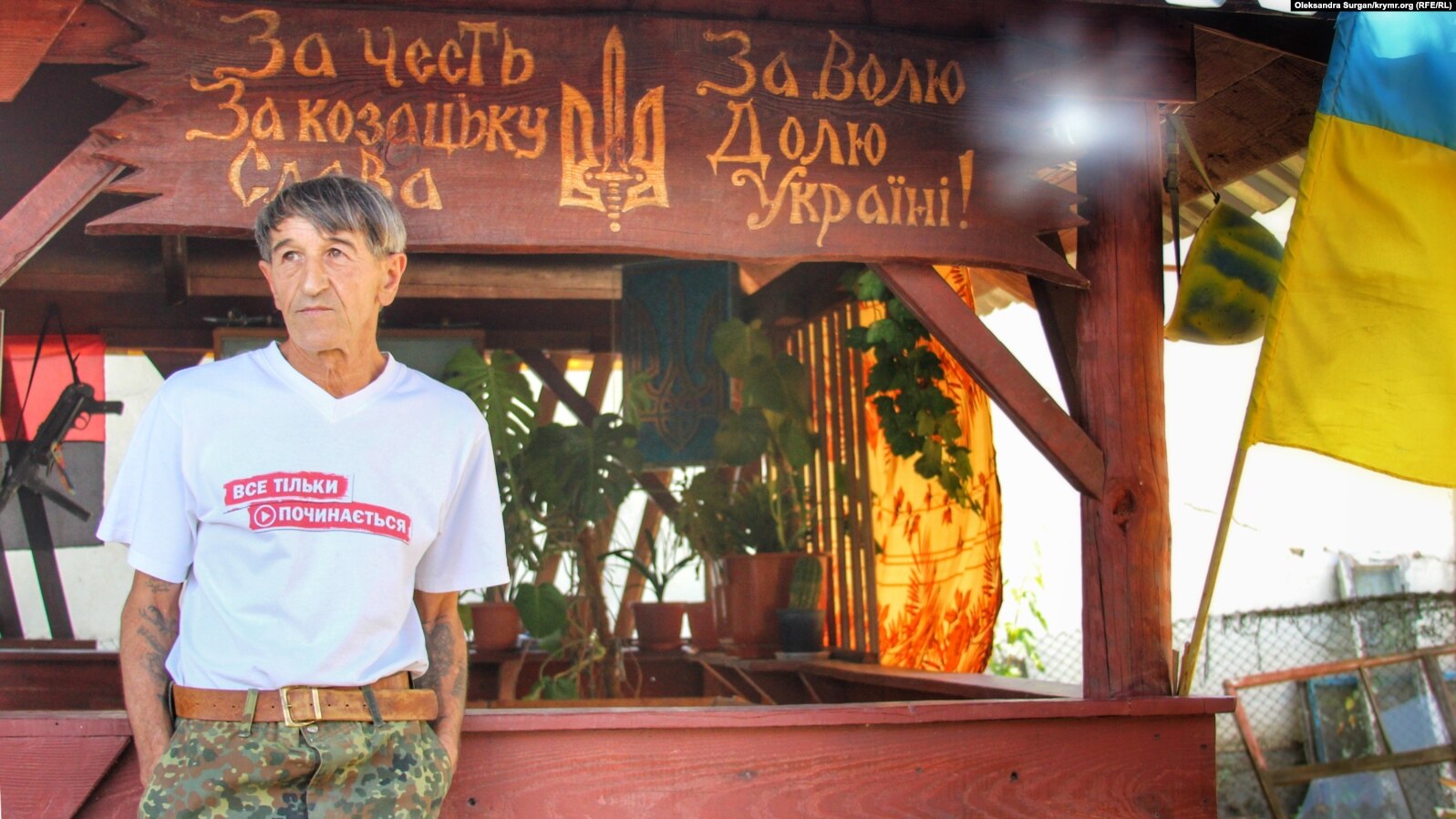The Ukrainian political prisoner Yevhen Panov has seen his mom Vira for the first time since Russian security officers seized him in Crimea seven months ago.
Longtime separation and the flow of terrible news have undermined Vira’s health. However, she found strength in herself to go on a hard and potentially dangerous journey to the Russian-annexed peninsula.
“Today, it's even more frightening to go to Crimea than to Moscow, but I’ve already lived a life and don’t fear anything. [...] Yes, I have to hope and wait for my son, but I can’t just sit back. I must do something to advance the day of his release,”
she tells Krym.Realii.
Bloody Crimean trap
Vira’s son, driver and volunteer Yevhen Panov was captured while entering Crimea in August 2016. He had been reportedly asked to evacuate a Ukrainian family from the occupied territory to mainland Ukraine. Yet that was a trap: the agents of Russia’s Federal Security Service (FSB) were waiting for him in the frontier zone. Having got off the car at the Russian-controlled checkpoint, Yevhen was suddenly struck at his head.
“I fell down and felt I was lying in a pool of my own blood,”
he would recall later.
Read more: A timeline of Russia's Crimean "terror" games | Infographics
The FSB charged Yevhen and a few other Ukrainian citizens with the involvement in a “sabotage and reconnaissance group,” which allegedly had to organize terrorist attacks in Crimea on the instructions of the Ukrainian military intelligence. With this story, Moscow resorted to a typical manipulation, Foreign Minister of Lithuania Linas Linkevicius commented forthwith:
Aggressor accused the victim of an attack. Old #KGB methods. False #Russia's accusations twd #Ukraine to justify future 'retaliation'?
— Linas Linkevicius (@LinkeviciusL) August 10, 2016
It seems to be no coincidence that the arrest of the so-called “Ukrainian saboteurs” took place on the eve of the G20 summit in China, where the leaders of Russia, Germany, France, and Ukraine were to discuss the war and peace in Donbas. Some observers pointed out that through the new Crimean provocation, Russian President Putin tried to raise bids just before the wrangle.
The Kremlin-installed “head of Crimea” Sergey Aksyonov called to kill the alleged “saboteurs” and hang their bodies on the frontier with mainland Ukraine. He also speculated about the US State Department backing the imaginary Ukrainian raid. Aksyonov’s deputy Ruslan Balbek kept up with his boss demanding no less than the expulsion of Ukraine from the UN and OSCE.
Read more: "Crimean saboteurs" - latest victims of Kremlin's hostage strategy
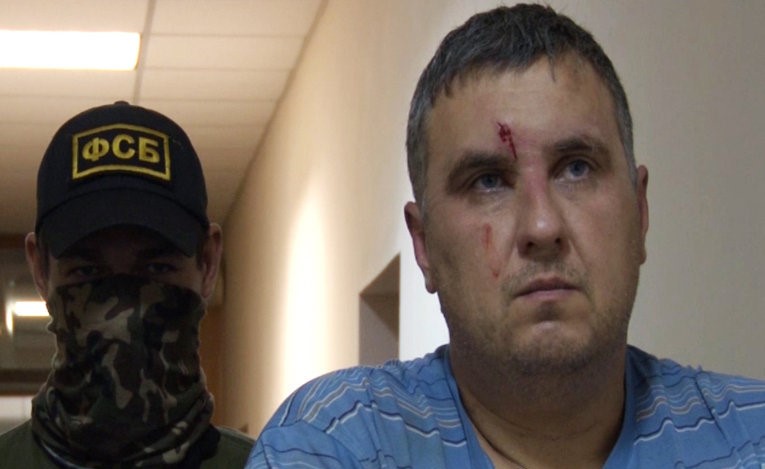
Russian propaganda media routinely broadcasted Panov’s “confession” like it was with some other Ukrainians who had gone through the crucible of torture. His wounded face betrayed the nature of a “welcome” he had received in occupied Crimea. When allowed to talk to independent lawyers, Panov and his co-defendant Andriy Zakhtey renounced their false testimonies.
In December 2016, Panov revealed the details of savage violence used against him during the investigation. According to his complaint to Russia’s Investigative Committee, he was beaten with an iron pipe on the head, kidneys, arms, and legs, and hung in the air by handcuffs. Security officers electrocuted the prisoner, squeezed his genitals with a collar, and simulated his execution with the only aim: to make him admit the guilt.
For several months, Panov and Zakhtey were held in the FSB-controlled Moscow Lefortovo jail, where they were accidentally found by the Russian human rights activist Zoya Svetova. Panov’s mother was going to visit her son in Moscow when in February 2017 the two defendants were transported back to Crimea. Vira had to change her plans at once.
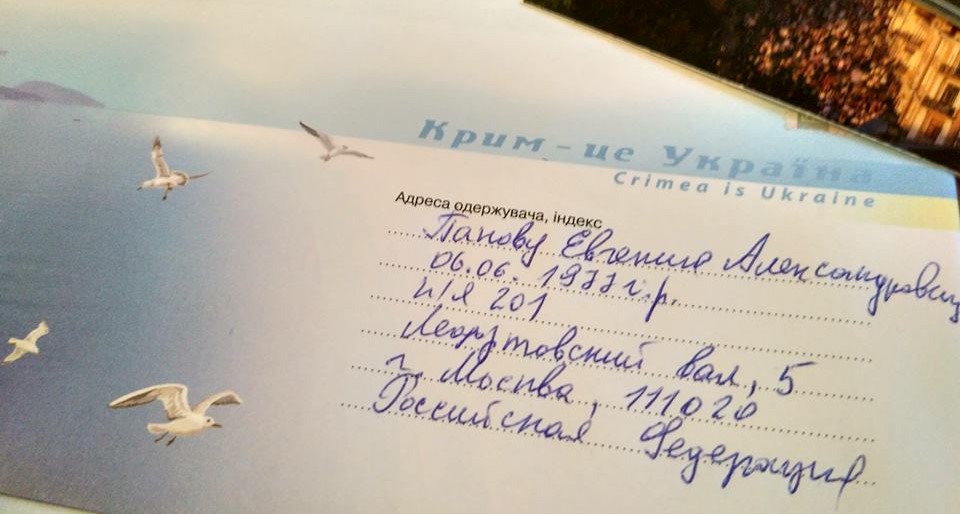
Emotional meeting
Upon her arrival in Crimea, Vira was denied the meeting with Yevhen in the remand jail of Simferopol. However, she managed to appear in the occupation “court” on March 2, when the prolongation of his arrest was being considered. Yevhen was shocked: he had known nothing about his mother's journey.It’s so absurd and so painful when you know that your offspring is suffering for no reason.
39-year-old Ukrainian hostage looked very haggard, with his eyes staring like the eyes of an old man. He was limping, and his wrists were hurt and purple because of handcuffs. The “court” decided to keep him in custody for another three months. On the forthcoming trial, he may face from 12 to 20-year prison sentence.
Before her son was taken back to remand jail, Vira asked for a permission to embrace him. She cried and wished the guards that their mothers would never shed tears over them alike. The guards conceded. Yevhen had a short time to tell her that he had received the drawings sent by Ukrainian children to support him in trouble. “You know,” Vira says now, “for him it’s very important that people believe in him and fight for him.”

